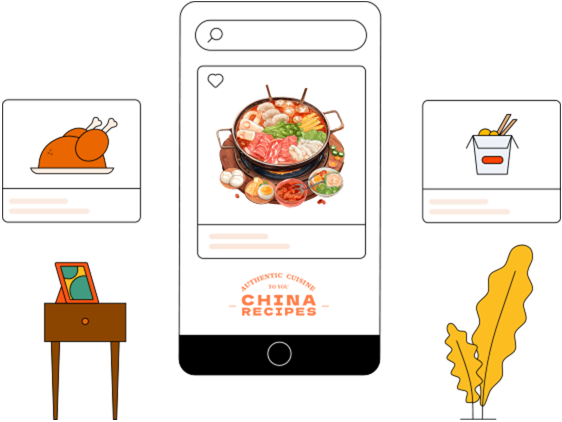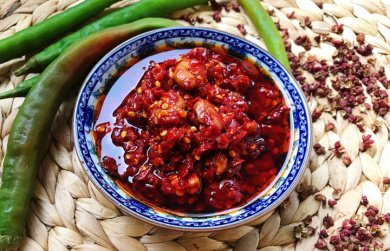Can You Cook Duck Like You Cook Chicken? Cooking Tips and Tricks
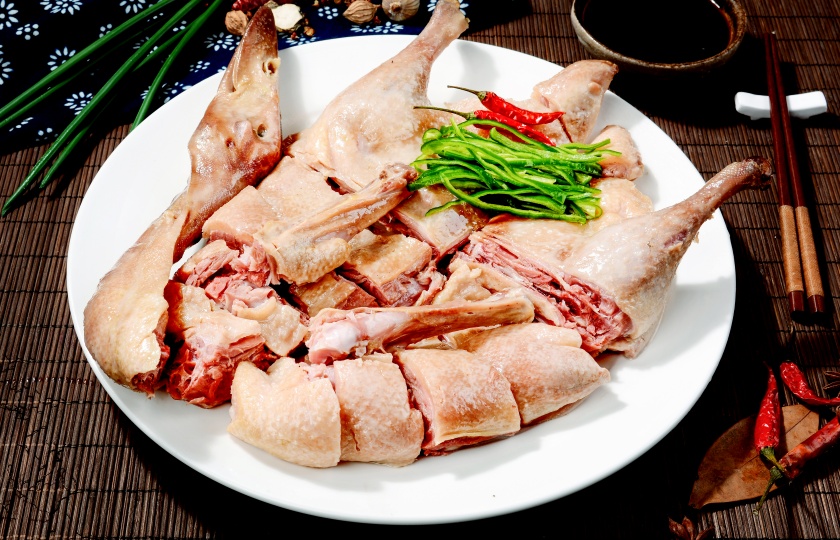
In the eyes of many, cooking duck is more challenging than cooking chicken. Is it really not as simple as cooking chicken? There are many details worth understanding behind this.
Can you cook duck the same way as chicken?
Yes, you can cook duck like chicken! While duck and chicken share many similarities, duck tends to be richer and fattier, so some adjustments are needed when using the same cooking methods.
For roasting, you can follow the same approach as chicken, but keep in mind the duck's fat. During roasting, you may need to render out some of the fat from the skin. You can do this by flipping the duck halfway through or scoring the skin to help the fat release.
For braising or making soups, duck generally requires a bit more cooking time than chicken because it’s denser. You can use the same cooking times as for chicken, but usually, it will need an extra 10-15 minutes.
How do cooking times for duck and chicken compare?
Roasting
Chicken usually takes 20-30 minutes to roast, depending on its size. Duck, on the other hand, requires 45 minutes to 1 hour, especially larger ducks which may take longer. Remember to flip the duck during roasting to make the skin crispy.
Stewing/Soup
Chicken typically takes about 1 to 1.5 hours to stew, with more tender cuts cooking faster. Duck needs a longer time, usually 1.5 to 2 hours, especially for larger pieces and bone-in cuts, which take a bit more time.
Pan-frying or Stir-frying
Chicken takes around 10-15 minutes to pan-fry or stir-fry. Duck takes a bit longer, usually 15-20 minutes, especially if you're aiming for crispy skin. Duck requires more time to allow the fat to render out properly.
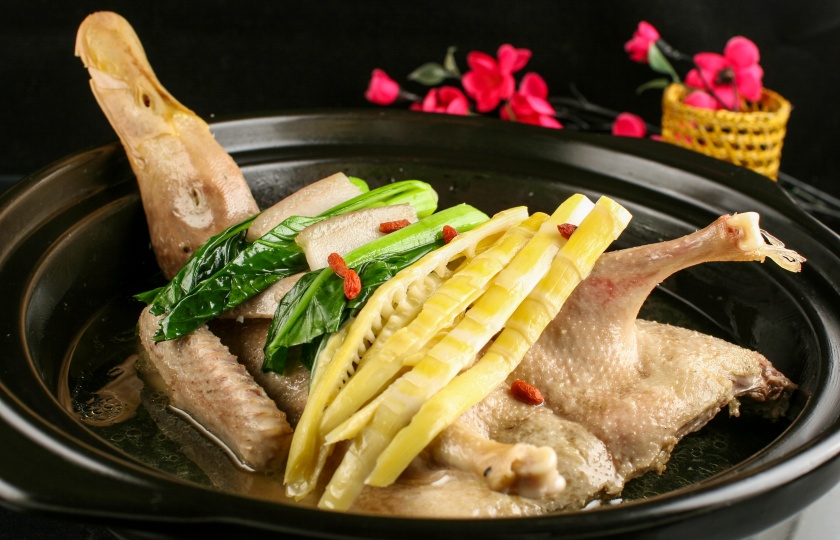
How do you cook duck without drying it out?
To prevent duck from drying out, the key is to control the cooking temperature and method. Duck has a higher fat content, which can keep it tender and juicy if cooked properly, but can also become dry and tough if overcooked. Here are a few tips:
Slow Cooking
Low-temperature roasting or stewing is the best way to keep duck tender. Cooking at a lower temperature allows the fat to slowly penetrate the meat, keeping it moist. High heat can dry out the meat quickly.
Keep the Skin Fat
The fat under the duck skin is crucial for keeping the meat moist. Avoid removing the skin, especially when roasting. The fat will render out during cooking, helping to maintain the juiciness and tenderness of the meat.
Avoid Overcooking
Duck, especially breast meat, becomes dry if overcooked. Adjust the temperature when roasting, or control the heat when stewing to ensure the meat doesn’t get too tough. Duck breast typically needs about 10-15 minutes of roasting to reach its optimal state.
Marinate
Marinating is a great way to keep duck moist. Adding oil, spices, or sauces during marination can enhance flavor and lock in moisture, preventing the meat from drying out during cooking.
Apply Oil or Butter
Before cooking, rub the duck with olive oil or butter. This not only helps keep the meat moist but also adds flavor.
Rest After Cooking
Allow the duck to rest for a few minutes after cooking before slicing. This helps redistribute the juices within the meat, preventing moisture loss when you cut into it.
Is duck a good substitute for chicken?
Duck is a great substitute for chicken, especially when you’re looking for a different flavor and texture. The main differences between duck and chicken lie in flavor and fat content.
First, duck has a richer, more pronounced flavor, and its meat is denser and chewier. It also contains more fat, which gives it a more succulent texture. If you're after a richer taste experience, duck can definitely replace chicken.
In terms of cooking methods, duck and chicken are quite similar. Both can be roasted, stewed, fried, or grilled. However, since duck has more fat, you’ll need to pay extra attention to heat control during cooking to avoid an overly greasy result.
The texture of duck breast is similar to chicken breast but is thicker and fattier. If you substitute duck legs for chicken legs, you'll find the texture to be chewier.
However, due to its higher fat content, duck may feel greasy if you're focused on a low-fat diet. But if you're not concerned with that and enjoy more flavor and texture complexity, duck is an excellent choice.
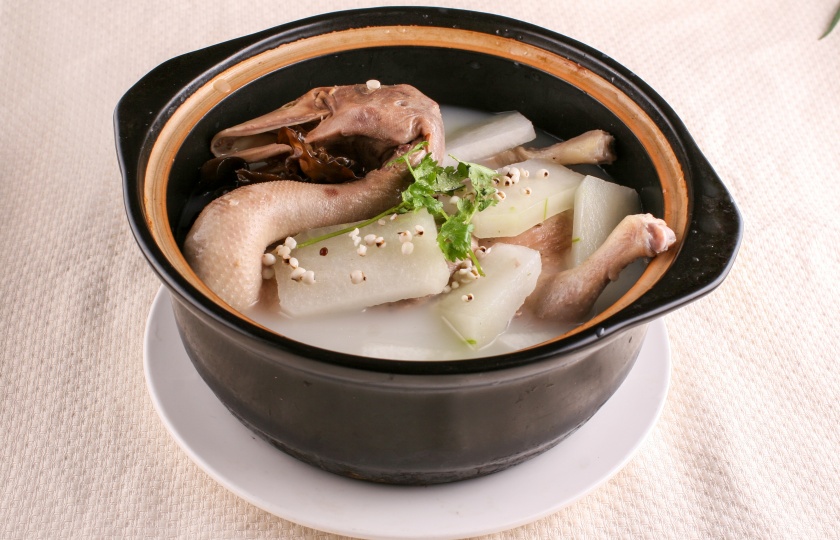
Why is duck not as popular as chicken?
Flavor and Texture
Duck has a stronger flavor and a more pronounced richness compared to chicken, thanks to its higher fat content, especially under the skin. This makes it more oily and not everyone enjoys that texture. In contrast, chicken has a milder flavor, making it more versatile in various cooking styles and palatable to a wider range of people.
Cooking Difficulty
Duck is trickier to cook than chicken. For instance, roasted duck, especially duck breast, can easily become dry if not cooked properly. On the other hand, chicken is easier to handle—whether boiled, pan-fried, or roasted, it has a higher success rate and is more forgiving in the kitchen.
Cultural Factors
Duck isn't as commonly used in everyday meals as chicken. It's often reserved for special dishes or festive occasions, such as Peking duck or French duck breast. Chicken, however, is a staple in nearly every household, making it far more familiar and accessible.
Price and Availability
Duck is generally more expensive than chicken, and sometimes it’s not as readily available in supermarkets. Chicken, on the other hand, is ubiquitous, more affordable, and therefore enjoys much broader popularity.
Should you cover duck with foil when roasting?
It's recommended to cover the duck with foil for the first part of roasting to keep the meat moist and prevent it from drying out. Once it's nearly cooked, remove the foil during the last 10 minutes to allow the skin to crisp up. This way, you get tender meat and crispy skin.





